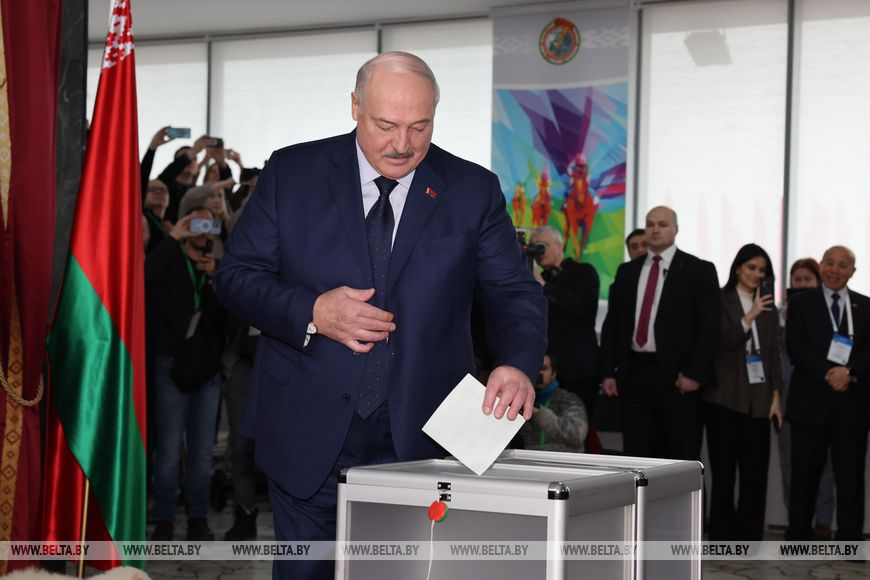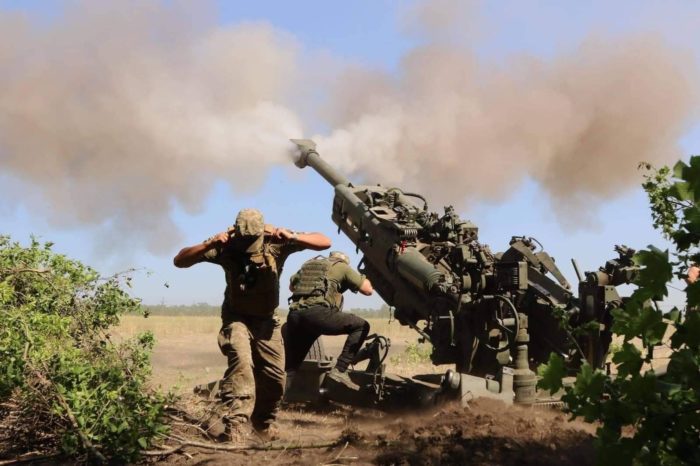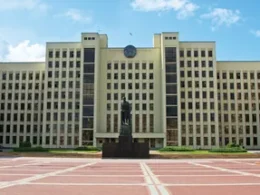The European Platform for Democratic Elections (EPDE) has uncovered a network of over 90 politically biased observers who participated in legitimizing Belarus's 2025 presidential election.
Aliaksandr Lukashenka, who has ruled Belarus since 1994, sought a seventh term in office. He secured another term as Belarus’s president with 86.8% of the vote in an election that faced strong international criticism calling it a “sham.”
The election occurred without oversight from credible international organizations. Lukashenka’s administration declined to invite the Organization for Security and Co-operation in Europe (OSCE) observers, effectively preventing an independent assessment of the voting process.
The Belarusian Central Election Commission accredited 486 international observers during the electoral process. Many had direct ties to authoritarian regimes or faced criminal investigations in their home countries, the EPDE's investigation shows.
"Election monitoring is a fundamental pillar of democracy, but Lukashenka's Belarus has turned it into a farce," EPDE's Łukasz Kondraciuk reports. "This so-called observation mission was a staged performance, orchestrated to rubber-stamp a fraudulent election."
The observers included former EU politicians expelled for corruption, far-right extremists, and fugitives wanted in their home countries.
Frank Creyelman, a former Belgian senator expelled from the far-right Vlaams Belang party over Chinese espionage allegations, praised the election atmosphere. "Everything is taking place in a very cheerful, pleasant, festive atmosphere. In my country, everything is organized in a less engaging way and without music," he said.
Some observers had previously endorsed other contested elections. "I have participated in and prepared elections numerous times, including EU-wide ones. I would like to highlight the high level of security in the election process," Polish politician Krzysztof Tołwiński said during the observation mission.
The election took place with around half a million Belarusians in exile. Over 1,200 political prisoners remain behind bars, including Nobel Peace Prize laureate Ales Bialiatski.
Tsikhanouskaya, who emerged as a prominent opposition figure in 2020 after her husband was jailed for his presidential bid, organized protests in Warsaw on 26 January, where demonstrators carried white-red-white flags symbolizing opposition to Lukashenka’s rule.
European leaders
In the statement condemned Belarus’s presidential election as a sham, citing severe restrictions on human rights, political participation, and media freedom.
In particular, EU High Representative for Foreign Affairs Kaia Kallas and EU Commissioner for Enlargement Marta Kos issued their own joint statement.
The EPDE investigation revealed that domestic election observation has been eliminated. Local monitoring organizations were branded as "extremists" and shut down.
The Ukrainian Foreign Ministry announced it would not recognize the results, while the OSCE expressed “deep regret” over Belarus’s decision to deny access to independent election observers.
Belarus maintains close ties with Russia, having allowed its territory to be used as a launching pad for the full-scale invasion of Ukraine. The Belarusian territory was used for troop deployments and missile strikes against Ukraine, facilitating Russia’s advance towards Kyiv on 24 February 2022. During the election, Lukashenka expressed “no regrets” about this decision.
Belarus also faces Western sanctions due to human rights violations and its support for Russia’s military actions.
Read also:
- Lukashenka extends 30-year rule in “sham” Belarus president election, draws international criticism
- Putin ally Lukashenka labels Ukraine “enemy”, puts Belarusian troops on alert
- Belarus launches military exercises near Ukrainian border
- Zelenskyy reveals Lukashenka’s apology for Russian invasion from Belarus in 2022





